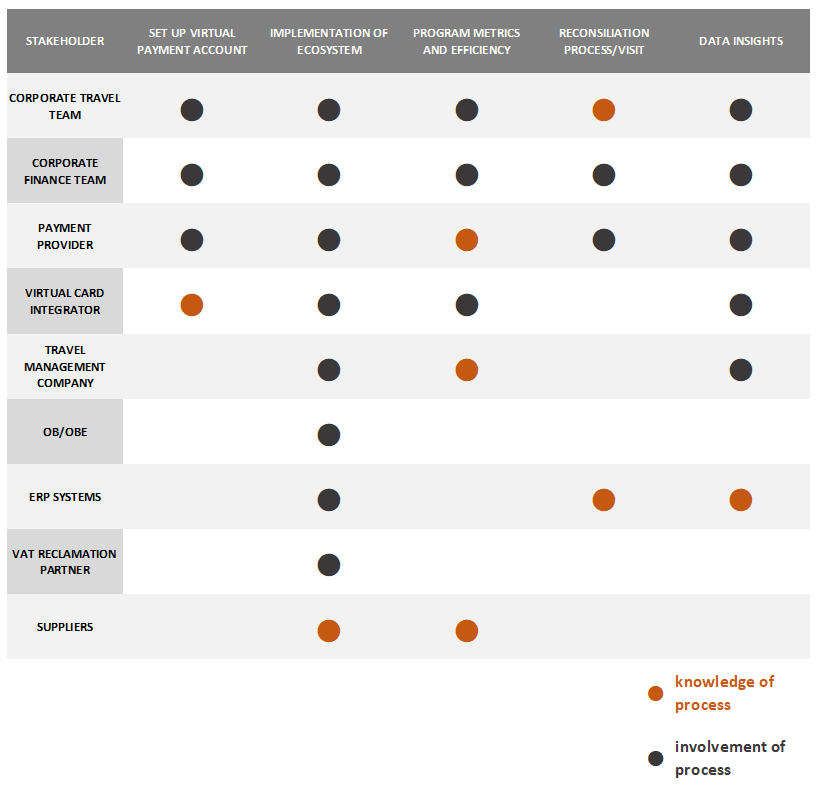Skip to Main Content
Module 2: Stakeholders
Who Are The Common Stakeholders
 Learning Objectives
Learning Objectives
- identify who in your organization should be involved in the payment program.
- identify who outside of your organization should be involved in the payment program.
- understand where everyone falls within the lifecycle.
Corporate Travel Buyers, Managers and Finance Team:
Responsible for managing the travel programs for their companies as well the financial team for reconciliation and expense insight.
Travel Management Companies (TMCs):
Agency resources so that rates negotiated by Travel Buyers are available to be booked over the phone by travelers.
Example: AMEXGBTA, BCD, CWT, Direct Travel, World Travel Inc., etc.
Online Booking Tool (OBT):
Platform for which travelers can book their own travel online.
Example: EConcur, Deem, Egencia, GetThere, etc.
Corporate Card Suppliers:
Major banks providing corporate American Express, MasterCard or Visa cards for a corporation’s traveling population.
Example: American Express, Bank of America, Citibank, JP Morgan Chase, etc.
Virtual Card Suppliers:
Automates the process by generating a VCN for a specific purchase (i.e. hotel, air, etc.).
Example: Conferma Pay, CSI, GraspPAY, HRS PAY, WEX, etc.
Global Distribution Systems (GDS):
A worldwide computerized reservation network used by travel agents, online reservations sites and large corporations to book airfare, hotel reservations, rental cars, and other travel related items. Example: Amadeus, Sabre, Travelport +.
Suppliers:
-
Hoteliers
-
Airline Partners
-
Ground Partners
Where The Stakeholder Fall Within The Lifecycle
 Learning Objectives
Learning Objectives
